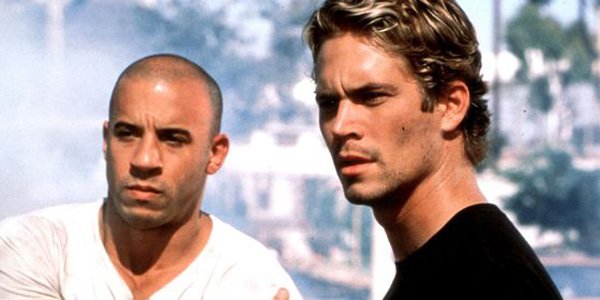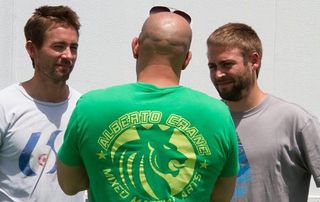Fast & Furious 7's Insurance Claim Will Be The Largest In Movie History

Since the passing of beloved actor Paul Walker, there has been a ton of talk and speculation about what Fast & Furious 7, which was in production when he died, would do to complete the film. From writing Walker out to using deleted scenes from earlier movies to paying for CGI work, pretty much every conceivable possibility was publicly chewed around. Lost in that loud shuffle was a really interesting, underlying financial question: who would pay for all these alterations? Well, the answer is really complicated and could get messy in a hurry thanks to what should be the largest insurance settlement in the history of the motion picture industry.
Like the majority of big budget, studio-driven event films, Fast & Furious 7 was insured. Specifically, the tentpole was/ is insured by the Fireman’s Fund, the single largest, most storied insurer in Hollywood. They’ve paid out settlements before, including one in the $15 to $20 million range after John Candy died during Wagons East. According to The Hollywood Reporter, this claim will likely double that one, at minimum. Exactly where the figure will end up, however, is a matter of debate.
Publicly, Universal and the Fireman’s Fund have said nothing but nice things but behind the scenes, there is allegedly some friction going on thanks in part to how the studio has chosen to carry on without Paul Walker. Executives have enlisted the help of Walker’s two brothers, Cody and Caleb, as well as an actor who can recreate Walker’s persona.

All scenes are reportedly being shot with each of those three men, as well as a bunch of new cameras courtesy of Peter Jackson’s Weta, which will eventually perform computer-generated face replacement. Throw all of that together with the multiple month hiatus production took, increased costs to keep the other actors on board, forced script re-writes and additional increased editing time and Universal may be prepared to argue Fast & Furious 7 cost an additional $50 million thanks to Walker’s death.
That’s basically how insurance claims work in Hollywood. The studio is always on the hook to pay whatever the budget was originally slated to cost (in this case, $200 million), and the insurer is required to pay the extra funds it took to finish the movie on account of injuries, deaths, frogs raining from the sky or anything else weird that costs money and delays. Unfortunately, Hollywood budgets are a very inexact science, and big budget films routinely go over the original figure. As such, rumors are swirling that Fireman’s Fund may contend some of this $50 million was unnecessary and/ or caused by problems unrelated to Paul Walker’s death.
Regardless of what happens, both Universal and the Fireman’s Fund should be fine. They’ve both been in business for more than a century and can weather a bad storm. Besides, it’s very likely this movie will still make money in the long run, and since Universal will still want to work with Fireman’s Fund in the future, its lawyers won’t push for every last red cent.
We’ll keep you updated as the companies start speaking publicly. Until then, here’s to hoping Fast & Furious 7 winds up being the beautiful send-off to Paul Walker that we’ve all been hoping for.
CINEMABLEND NEWSLETTER
Your Daily Blend of Entertainment News
Photo Courtesy Of Vin Diesel and can be accessed here.
Mack Rawden is the Editor-In-Chief of CinemaBlend. He first started working at the publication as a writer back in 2007 and has held various jobs at the site in the time since including Managing Editor, Pop Culture Editor and Staff Writer. He now splits his time between working on CinemaBlend’s user experience, helping to plan the site’s editorial direction and writing passionate articles about niche entertainment topics he’s into. He graduated from Indiana University with a degree in English (go Hoosiers!) and has been interviewed and quoted in a variety of publications including Digiday. Enthusiastic about Clue, case-of-the-week mysteries, a great wrestling promo and cookies at Disney World. Less enthusiastic about the pricing structure of cable, loud noises and Tuesdays.
Most Popular







